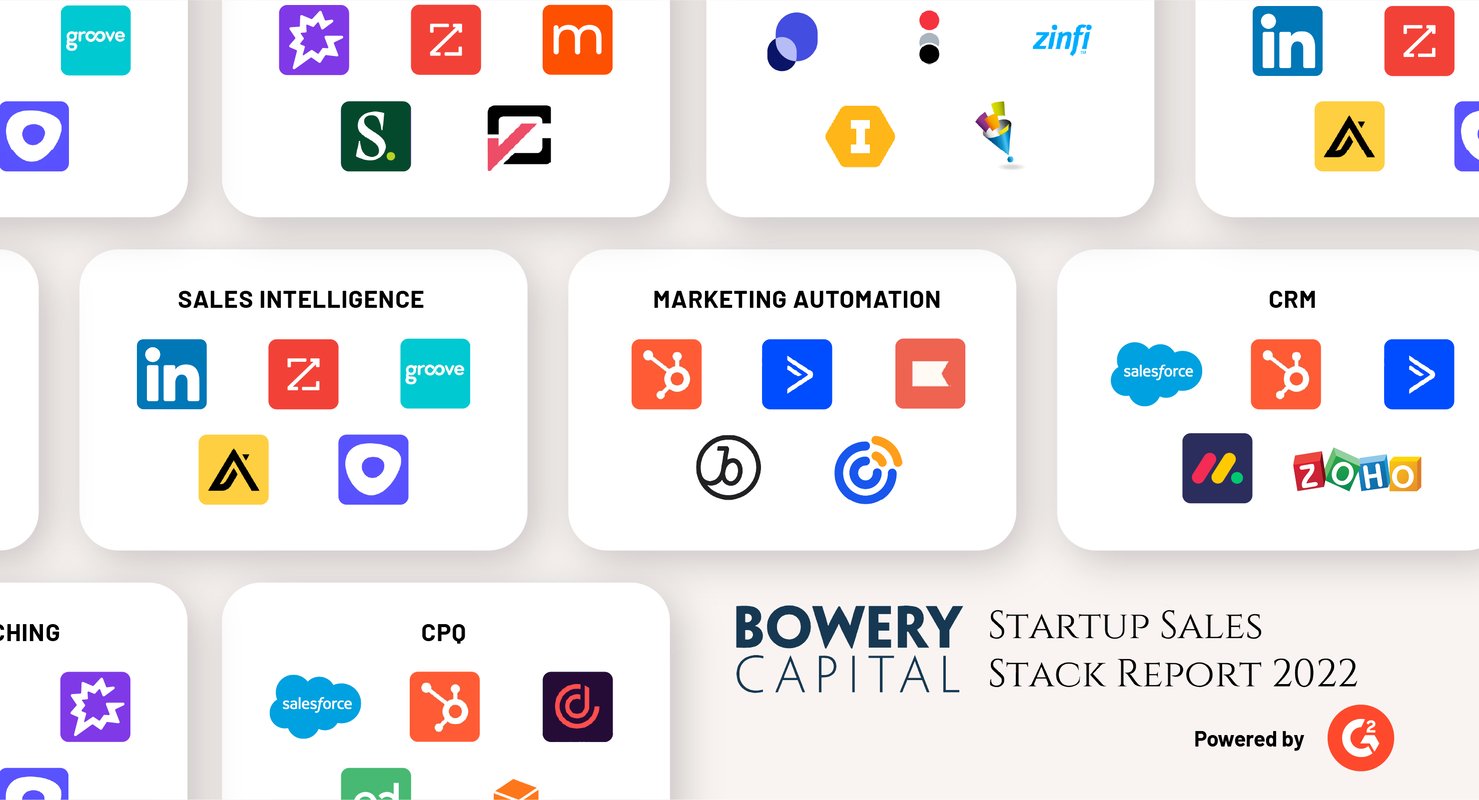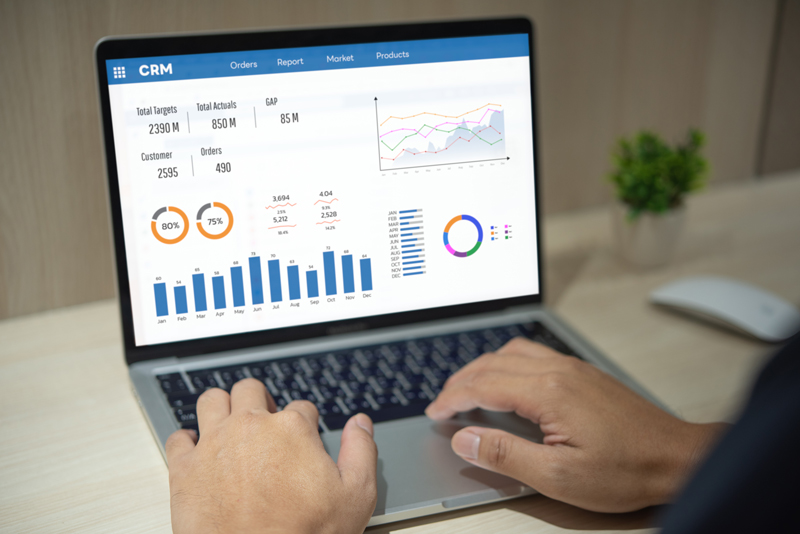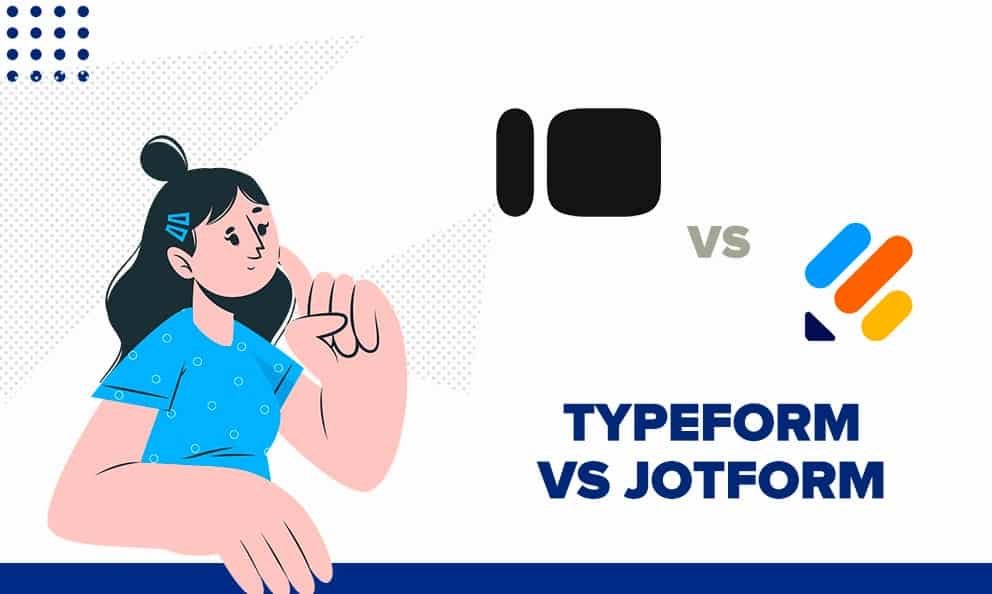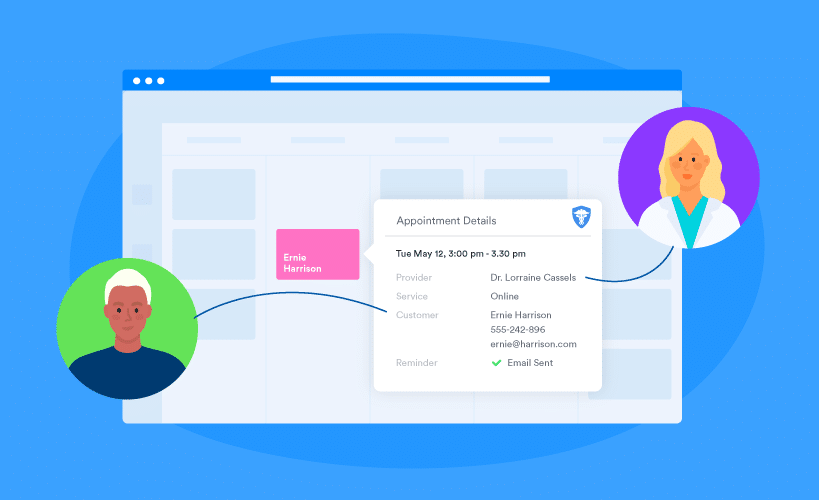Marketing and sales software can transform how businesses operate. These tools streamline processes and boost efficiency.
In today’s fast-paced digital world, businesses need every advantage to stay ahead. Marketing and sales software provide that edge. These tools help manage customer relationships, automate tasks, and analyze data. They free up time so teams can focus on strategy and creativity.
The right software can make campaigns more effective and sales processes smoother. Whether you’re a small startup or a large enterprise, investing in marketing and sales software can lead to significant growth. This blog will explore the benefits and features of these powerful tools, helping you decide which ones might be the best fit for your business. Stay tuned to discover how you can enhance your marketing and sales efforts.

Credit: company.g2.com
Introduction To Marketing And Sales Software
Marketing and sales software streamline business operations. These tools enhance customer engagement, manage campaigns, and track sales performance efficiently. Ideal for businesses aiming to boost productivity and improve results.
Marketing and sales software has transformed how businesses operate. These digital tools help companies streamline their marketing and sales processes. They offer numerous features to improve efficiency and productivity. Businesses can use these tools to manage customer relationships. They can track sales leads and automate marketing tasks. These tools provide valuable insights through data analytics. This allows businesses to make informed decisions.Importance Of Digital Tools
Digital tools simplify complex tasks. They save time and reduce errors. Marketing and sales software helps teams collaborate better. It ensures consistent messaging across all channels. These tools also enable personalized marketing. This leads to better customer engagement. Digital tools also help in tracking performance. They provide real-time data on campaigns and sales. This helps businesses adjust their strategies quickly. They can identify what’s working and what needs improvement.Impact On Business Growth
Marketing and sales software can drive significant growth. They help businesses reach a larger audience. Automated tasks free up time for strategic planning. This leads to more effective marketing campaigns. Sales teams can focus on closing deals. These tools also improve customer satisfaction. They ensure timely responses and personalized communication. Happy customers are more likely to return and refer others. This boosts revenue and growth. In short, marketing and sales software are essential for modern businesses. They offer many benefits that contribute to growth and success. “`
Credit: ventureandgrow.com
Key Features To Look For
When choosing marketing and sales software, identifying key features is crucial to ensure it aligns with your business needs. Selecting the right software can boost productivity and streamline processes, ultimately driving growth. Let’s dive into essential features you should look for.
Automation Capabilities
Automation is a game-changer in marketing and sales. It allows you to set up workflows that automatically perform repetitive tasks. This saves time and reduces human error.
Look for software that can handle email marketing automation, social media scheduling, and lead nurturing. These capabilities help maintain consistent communication with your audience.
For instance, automating email campaigns ensures your customers receive timely updates and promotions. This keeps them engaged without manual effort.
Crm Integration
Customer Relationship Management (CRM) integration is vital. It ensures your marketing and sales efforts are aligned, providing a comprehensive view of customer interactions.
Choose software that seamlessly integrates with your existing CRM system. This enables better tracking of customer journeys and more personalized marketing strategies.
With CRM integration, you can monitor lead status, track sales progress, and analyze customer data all in one place. This enhances decision-making and boosts efficiency.
What specific features do you find indispensable in marketing and sales software? Share your thoughts in the comments!
Top Marketing Software Options
In the fast-paced world of digital marketing, having the right tools can make all the difference. With countless options available, how do you choose the best marketing software for your needs? Here, we break down some of the top marketing software options to help you streamline your efforts and achieve your goals.
Email Marketing Tools
Effective email marketing can boost engagement and drive sales. Tools like Mailchimp and Constant Contact offer intuitive platforms to design, automate, and analyze your email campaigns.
I remember starting with Mailchimp for my first newsletter. The templates were easy to use, and the automation features saved me hours of manual work.
Are you looking for a way to personalize your emails? Consider using these tools to segment your audience and tailor your messages accordingly.
Social Media Management
Managing multiple social media accounts can be overwhelming. Tools like Hootsuite and Buffer allow you to schedule posts, monitor engagement, and analyze performance all in one place.
When I first tried Buffer, I was amazed at how it simplified my social media strategy. Scheduling posts in advance freed up time for other tasks.
Do you struggle with keeping your social media content consistent? These tools can help you maintain a steady presence across platforms, ensuring your brand stays top of mind.
Choosing the right marketing software can transform your strategy. What tools have you found most effective in your marketing efforts? Share your experiences in the comments below!
Best Sales Software Solutions
Choosing the right sales software is crucial for any business. It can drive your sales team’s efficiency and help you close more deals. Here’s a look at some of the best sales software solutions available today.
Lead Management
Managing leads effectively is vital. Without a proper system, potential customers can easily slip through the cracks.
Salesforce is a popular choice for lead management. It allows you to track every interaction with your leads. With its intuitive interface, you can categorize and prioritize your leads with ease.
Another great tool is HubSpot. It offers a free CRM that helps you manage and nurture leads. You can see all your contacts in one place and track their engagement with your content.
How do you currently manage your leads? If your method involves scattered spreadsheets, it’s time to consider a dedicated lead management software.
Sales Analytics
Understanding your sales data can give you a competitive edge. Sales analytics software offers insights that can drive your strategy.
Tableau is an excellent option for sales analytics. It helps you visualize your data in an easy-to-understand format. You can create detailed reports and dashboards that keep your team informed.
Another powerful tool is Zoho Analytics. It integrates with various platforms and provides deep insights into your sales performance. You can analyze trends and make data-driven decisions.
Are you leveraging your sales data to the fullest? If not, investing in sales analytics software can transform your approach.
Investing in the right sales software can streamline your processes and boost your sales. Explore these options and find the ones that best fit your business needs.
Benefits Of Integrating Marketing And Sales Software
Integrating marketing and sales software streamlines processes, enhancing collaboration. It leads to better data sharing, improving decision-making and customer experience.
Integrating marketing and sales software can completely change the way your business operates. It aligns your teams, enhances productivity, and boosts sales. Let’s dive into the benefits of bringing these tools together.Streamlined Processes
Integrating marketing and sales software creates a seamless workflow. Your teams can share data easily, reducing the time spent on repetitive tasks. Imagine having a single platform where all your leads, customer interactions, and sales data are stored. This means less time switching between systems and more time focusing on what matters—converting leads into customers.Improved Customer Insights
With integrated software, you get a 360-degree view of your customers. Marketing and sales data together provide a clearer picture of customer behavior and preferences. Consider how valuable it is to know what content your leads are engaging with before they even talk to a salesperson. This insight helps your team tailor their approach, making interactions more relevant and effective. In my experience, using integrated software allowed me to understand my customer’s journey better. I could see the exact path they took before making a purchase, which helped me adjust my strategy and improve conversion rates. How would you leverage this detailed customer insight to boost your sales and marketing efforts?How To Choose The Right Software
Selecting the best marketing and sales software involves assessing your business needs and budget. Consider user-friendliness, features, and customer support. Compare options to find the perfect fit.
Choosing the right marketing and sales software is crucial for your business success. The right tool can streamline your operations, enhance your customer relationships, and boost your sales. But with so many options available, how do you make the right choice? Here’s a guide to help you navigate this important decision.Assessing Business Needs
First, you need to understand what your business truly needs. Are you looking for better customer relationship management, or do you need an advanced analytics tool? Make a list of the must-have features. Think about your current pain points. What challenges do you face in your marketing and sales processes? Address these areas first. Talk to your team. They are the ones who will use the software daily. Their input is invaluable.Evaluating Software Providers
Once you know what you need, it’s time to evaluate software providers. Start by researching the top options in the market. Read reviews, check ratings, and compare features. Request demos or trials. This hands-on experience is crucial. You want to see if the software is user-friendly and suits your workflow. Consider customer support. Good support can save you a lot of headaches down the line. Make sure the provider offers reliable and accessible help. How do you know if a software provider is trustworthy? Look at their client list and case studies. Successful implementations and happy clients speak volumes. Don’t forget about scalability. Your business will grow, and your software needs to keep up. Choose a provider that can scale with you. By carefully assessing your needs and evaluating providers, you can make an informed decision. The right marketing and sales software will be a game-changer for your business. So take your time, do your research, and choose wisely.Implementing Software Successfully
Implementing marketing and sales software boosts efficiency and enhances customer interactions. Accurate data tracking and streamlined processes improve decision-making and sales performance.
Implementing marketing and sales software can be challenging. But, with the right approach, it becomes manageable. Proper implementation ensures the software works well for your team. It starts with planning. Know your goals and needs. Identify the key features you want. Then, choose software that fits these needs. Let’s dive into some key aspects of successful implementation.Staff Training
Training your staff is crucial. They need to understand the software. A well-trained team uses the software effectively. This leads to better results. Begin with basic training. Explain the software’s purpose. Show how it helps their tasks. Use simple examples. Keep sessions short and focused. Offer hands-on practice. Let them explore the software. Answer questions and address concerns. Provide ongoing support. Regularly update training. As the software evolves, so should their skills. Keep them informed about new features.Measuring Success
Measuring success helps you understand the software’s impact. Start by defining clear metrics. Know what success looks like. Track key performance indicators (KPIs). Examples include increased sales, better customer engagement, and time saved on tasks. Use software tools for tracking. Many have built-in analytics. Review these reports regularly. Compare them against your goals. Adjust your strategy based on the results. If something isn’t working, try a different approach. Celebrate small wins. They boost team morale. By focusing on staff training and measuring success, you can implement software effectively. This ensures you get the most value from your investment. “`Future Trends In Marketing And Sales Software
Marketing and sales software is evolving rapidly. AI-driven tools are becoming essential for personalized customer experiences. Automation and predictive analytics are streamlining processes, improving efficiency, and enhancing decision-making.
As we look ahead, the marketing and sales software landscape is evolving at a rapid pace. The future promises innovative tools and smarter technologies that can transform how businesses connect with customers. If you’re keen to stay ahead, it’s crucial to understand the upcoming trends shaping this space.Ai And Machine Learning
Artificial Intelligence (AI) and Machine Learning are at the forefront of this transformation. These technologies enable software to learn from data, making your marketing and sales efforts more efficient. Imagine software that predicts customer behavior or suggests the best time to send an email. This isn’t just about automation; it’s about making smarter decisions. AI can analyze vast amounts of data faster than any human, providing insights that can boost your sales strategies. Consider how chatbots are now handling customer queries 24/7, freeing up your team for more complex tasks.Personalization And Customer Experience
Personalization is no longer optional; it’s a necessity. Customers expect tailored experiences, and marketing software is evolving to meet these demands. Picture software that customizes content based on a user’s past interactions or purchase history. This level of personalization can significantly enhance customer satisfaction. When you make customers feel understood and valued, they are more likely to stay loyal to your brand. Real-time data analysis allows for immediate adjustments to marketing campaigns, ensuring they remain relevant. Think about your own experience. Have you ever received a recommendation that felt like it was made just for you? That’s the power of personalization in action. It’s these small touches that can make a big difference in the customer journey. As you plan your marketing strategies, consider how these trends can be integrated. What steps can you take today to prepare for the future? Staying informed and adaptable will ensure you’re always one step ahead in the competitive world of marketing and sales.Case Studies Of Successful Implementations
Marketing and sales software have transformed many businesses. By examining successful implementations, we can understand their impact. These case studies show how diverse organizations benefit from these tools. Let’s delve into some real-life examples.
Small Business Success Stories
Small businesses often have limited resources. One bakery used marketing software to increase its reach. The software helped them target local customers. They saw a 30% rise in foot traffic within three months.
A boutique fashion store also benefited. They integrated sales software to manage inventory and customer data. This streamlined their operations. As a result, they doubled their online sales in six months.
Large Enterprise Examples
Large enterprises have different needs. A multinational corporation adopted a comprehensive sales platform. This platform unified their sales processes across continents. They reported a 25% increase in efficiency within a year.
Another example is a global tech firm. They used advanced marketing tools to personalize customer interactions. This led to a 40% boost in customer engagement. Their revenue from marketing campaigns also grew significantly.
These case studies highlight the power of marketing and sales software. Both small businesses and large enterprises can see substantial benefits.

Credit: www.nutshell.com
Frequently Asked Questions
What Is A Sales And Marketing Software?
A sales and marketing software helps businesses manage customer relationships, automate tasks, track sales, and analyze marketing efforts. It improves efficiency and boosts revenue.
Which App Is Best For Sales And Marketing?
HubSpot is one of the best apps for sales and marketing. It offers robust tools for CRM, email marketing, and analytics.
What Is The Best Software For Marketing?
HubSpot is the best software for marketing. It offers comprehensive tools for email marketing, automation, and analytics.
What Is The Best Crm Software For Sales?
The best CRM software for sales is Salesforce. It offers robust features, customization, and excellent customer support to boost sales performance.
Conclusion
Choosing the right marketing and sales software can boost your business. It helps streamline tasks and improves efficiency. With the right tools, your team can focus on closing deals. Research and find software that fits your needs. Test different options to see what works best.
Remember, the right software can make a big difference. It can lead to better customer relationships and higher sales. Invest wisely and watch your business grow.





